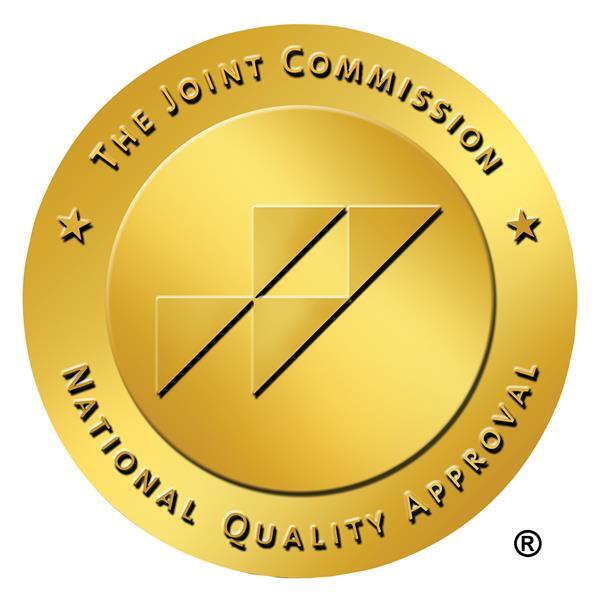Neighborhood Health Awarded Ambulatory Health Care Accreditation from The Joint Commission

Neighborhood Health has been awarded The Joint Commission’s Gold Seal of Approval® for Ambulatory Health Care Accreditation by demonstrating continuous compliance with its nationally recognized standards. Neighborhood Health is now among only 20% of health centers in Virginia that have achieved Ambulatory Care Accreditation from The Joint Commission. The Gold Seal of Approval® is a symbol of quality that reflects an organization’s commitment to providing safe and effective patient care.
Basim Khan, MD, Neighborhood Health’s Executive Director said, “we are grateful to all who contributed to this effort — our Board of Directors for prioritizing the provision of high-quality care and choosing to pursue accreditation; our Medical Director Dr. Martha Welman for planning and leading this effort from the onset; and our dedicated staff across the organization for working tirelessly to ensure that we met a broad range of standards across many domains. Through the planning and accreditation process we have improved as an organization and our patients will benefit as a result. This development is a reflection of our Health Center’s deep commitment to providing safe, effective, and high-quality patient care.”
Neighborhood Health underwent a rigorous, onsite survey in March. During the review, a team of Joint Commission surveyors with expertise in ambulatory health care evaluated compliance with ambulatory care standards related to a variety of areas, including coordination of care, monitoring for procedures that involve use of sedation or anesthesia, infection prevention and control, management of medications, and patient education and training.
“Neighborhood Health is pleased to receive accreditation from The Joint Commission, the premier health care quality improvement and accrediting body in the nation,” added Martha Welman, M.D., Neighborhood Health’s Medical Director. “Staff from across the organization continue to work together to develop and implement approaches and strategies that have the potential to improve care for the patients in our community.”
Established in 1975, The Joint Commission’s Ambulatory Health Care Accreditation Program encourages high-quality patient care in all types of freestanding ambulatory care facilities. Today, the Ambulatory Health Care Accreditation Program serves 2,100 ambulatory care providers, with more than 8,500 sites of care, which, in turn, serve more than 83 million patient visits annually.
“Joint Commission accreditation provides ambulatory care organizations with the processes contributing to improvements in a variety of areas from the enhancement of staff education to the demonstration of leading practices within the ambulatory setting,” said Pearl Darling, MBA, executive director, Ambulatory Care Accreditation Program, The Joint Commission. “We commend Neighborhood Health and its staff for achieving this pinnacle demonstrating a commitment to patient safety and quality. Your passion, dedication and tenacity can ultimately improve patient care. Thank you for your commitment to patient safety and entrusting The Joint Commission to assist you.”
The Joint Commission’s ambulatory health care standards are developed in consultation with health care experts and providers, measurement experts, and patients. The standards are informed by scientific literature and expert consensus to help organizations measure, assess and improve performance.
###
The Joint Commission
Founded in 1951, The Joint Commission seeks to continuously improve health care for the public, in collaboration with other stakeholders, by evaluating health care organizations and inspiring them to excel in providing safe and effective care of the highest quality and value. The Joint Commission accredits and certifies more than 21,000 health care organizations and programs in the United States. An independent, nonprofit organization, The Joint Commission is the nation’s oldest and largest standards-setting and accrediting body in health care. Learn more about The Joint Commission at www.jointcommission.org.

